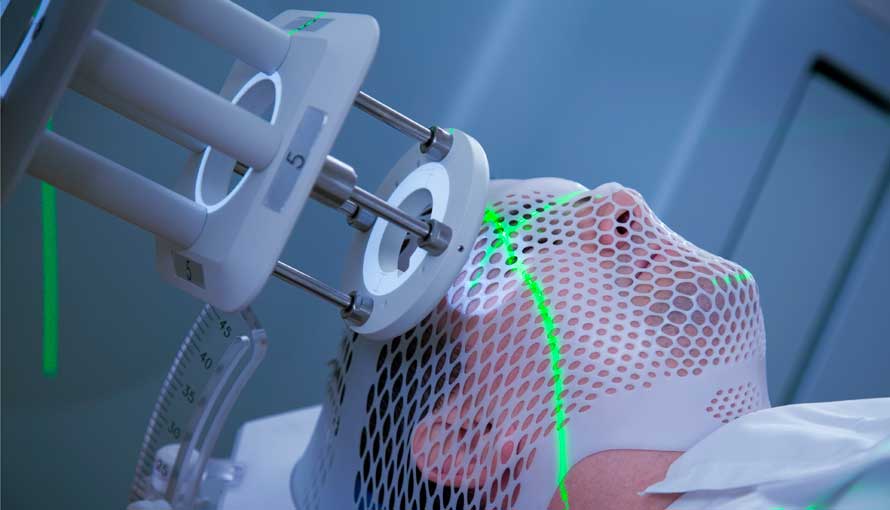Radiation Therapy for Meningioma

Radiation therapy can be a primary treatment for meningioma, or it can be administered after surgery to destroy any abnormal cells that remain. During radiation therapy, high-energy beams are directed at a tumor to damage the DNA inside its abnormal cells. This can help stop the tumor cells from dividing; it can also cause existing cells to self-destruct. Tumors often shrink after radiation therapy, which helps reduce pressure on the brain or spinal cord. This, in turn, can help alleviate symptoms.
Several types of radiation therapy can be used for meningioma treatment. While they all destroy tumor cells in the same way, the differences lie in how the radiation is delivered to a tumor. Because meningiomas are located in complex parts of the brain, often near important nerves, it’s essential for the delivery to be as precise as possible. To minimize radiation exposure to the healthy tissues surrounding a tumor, radiation therapists use options such as:
- Intensity-modulated radiation therapy (IMRT), in which computerized technology shapes the size and length of multiple beams, which are then directed at a tumor from a machine located outside the patient’s body.
- Proton radiation therapy, which is a type of external beam radiation therapy that uses powerful beams made up of protons (rather than traditional ionizing radiation) to destroy abnormal cells. This can be an especially effective option for treating tumors situated deep within the skull or near the skull base.
- Stereotactic radiosurgery, in which narrow beams of radiation are focused on a very small, specific area during a single session. This type of radiation therapy can sometimes be used in place of traditional surgery.
- Fractionated stereotactic radiation therapy, which is virtually identical to stereotactic radiosurgery but administered over the course of several days, rather than in a single dose.
At Moffitt Cancer Center, we offer many different forms of radiation therapy and tailor each patient’s treatment plan to his or her needs. While our vast range of leading-edge technologies enables us to provide each patient with the most appropriate form of treatment, it’s the expertise of our providers that truly sets us apart.
Medically reviewed by Andre Beer, MD, Neuro-Oncology Program.
Referrals are not needed to consult with a radiation oncologist who specializes in brain tumor treatment at Moffitt. To learn more about radiation therapy for meningioma, or to request an appointment, call 1-888-663-3488 or submit a new patient registration form online.
Treatment
